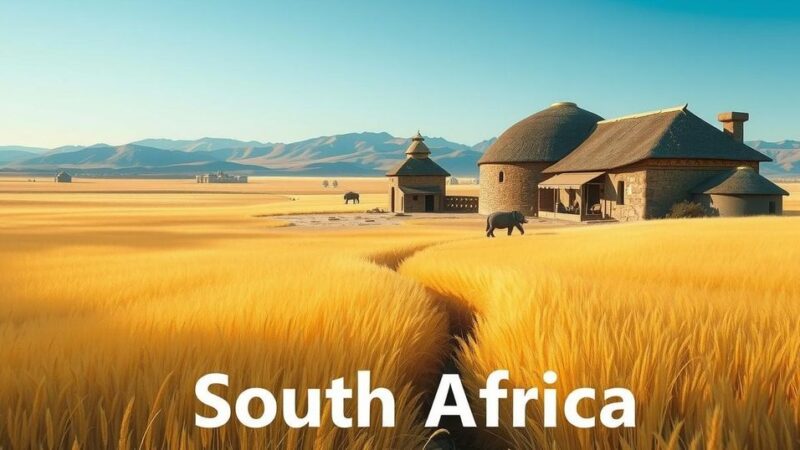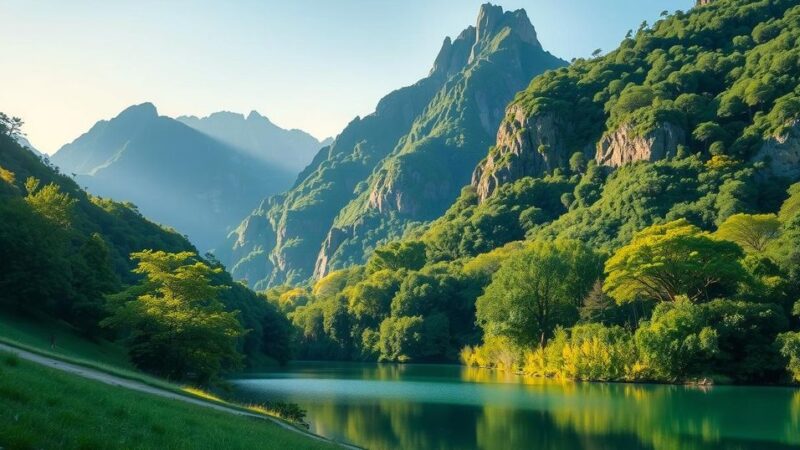Recent events in Nigeria have sparked significant political turmoil, from conflicts in the Senate to the defection of prominent figures from ruling parties. Concerns over governance and democracy are mounting alongside issues of public resource mismanagement. Citizens continue to question the future of Nigeria, echoing the longstanding sentiments about the nation’s direction.
In recent weeks, Nigeria has witnessed a whirlwind of political drama, raising questions about the current state and future of the nation. From conflicts in the Senate to the defection of governors and lawmakers, the political landscape appears as tumultuous as ever. Observers are left wondering about the implications of these events on democracy and national cohesion.
In one notable incident, Senator Natasha Akpoti-Uduaghan confronted Senate President Godswill Akpabio over a seemingly minor seating arrangement, leading to a heated exchange during a plenary session. This quickly devolved into accusations and personal attacks, an alarming display that suggests deeper egos and rivalries overshadow critical national discussions. The episode serves as a reflection of the personal interests taxing Nigeria’s political climate.
Then there is President Tinubu’s declaration of a state of emergency in Rivers State, which led to the suspension of the state’s governor, deputy, and assembly members. Legal experts have debated the legitimacy of such actions, with many expressing concerns that democracy is being endangered by a commitment to loyalty over legality. The Nigerian Bar Association condemned the move as a “dangerous affront” to democratic principles.
In another surprising twist, former Kaduna State Governor Nasir El-Rufai defected from the All Progressives Congress (APC) to the Social Democratic Party, claiming it was an effort to help rescue Nigeria from the “existential crisis” he suggests was birthed by the APC itself. His self-proclaimed act of patriotism has been met with skepticism, given his integral role in the party’s rise.
The political shaking continues beyond individual actions, with a mass migration of government officials from the Peoples Democratic Party (PDP) to the APC in Delta State. This is seen as a tactical maneuver to align with the ruling party, triggering fears that opposition forces are being systematically weakened. The Presidency, however, disputes these claims, labeling them as political distractions.
On a broader scale, economic and infrastructural issues simmer below the political firestorm. Allegations have emerged regarding the misappropriation of ₦71.2 billion from the Nigeria Education Loan Fund, with the Independent Corrupt Practices and Other Related Offences Commission (ICPC) initiating investigations amidst conflicting reports from the fund itself.
Additionally, the Warri Refining and Petrochemical Company remains inoperative due to safety concerns, contrary to earlier assurances from government officials regarding its resumption of operations. The lingering inefficiencies raise serious doubts about the government’s transparency and competence in managing public resources.
Concerned about these developments, I feel compelled to reflect on the direction in which Nigeria is heading. The once-asked question from Sunny Okposo, “Which way, Nigeria?” now resonates louder than ever. For decades, citizens have grown increasingly disenchanted as recycled leadership continues to falter while governance remains unsteady. It’s disheartening to witness the pulse of the nation growing weaker under the weight of unfulfilled promises and institutional failures.
Nigerians are not merely waiting for change; they are demanding it. From catchy tunes like African China’s “Mr President” to Eedris Abdulkareem’s poignant “Tell Your Papa,” artists have echoed the frustrations of a country in turmoil. These songs serve as an artistic plea for a collective awakening to the urgent needs of the nation.
Now, I invite you to contemplate several pressing questions: How long until the Nigeria we dream of comes to fruition? When will citizens feel pride in our nation? And when will we, as a people, unite to foster a country free of oppression? Until these questions are addressed, the chorus will continue: Which way, Nigeria?
In summary, Nigeria is at a critical point, grappling with significant political drama, concerning governance issues, and the urgency for a resolute national direction. Citizens are left asking fundamental questions about leadership, accountability, and their nation’s future. The time for clarity and progress appears vital as the societal pulse grows weaker and the need for change becomes increasingly urgent.
Original Source: www.thisdaylive.com






